The International Court of Justice (ICJ) has started its public hearings today on the occupation policies of Israel against Palestine. The hearings take place in the court’s seat in Den Haag, Netherlands. The ICJ is the highest judiciary organ of the United Nations.
The proceedings were set in motion by a resolution of the UN General Assembly on December 30, 2022. 87 countries voted in favor of the resolution that decided to render an advisory opinion from the court on Legal Consequences arising from the Policies and Practices of Israel in the Occupied Palestinian Territory, including East Jerusalem. 26 countries, including the U.S., several European countries and their overseas allies such as Australia and Japan voted against it.
Institutional context
The resolution and the according proceedings are separate from the recent case about allegations regarding Israel committing genocide in Palestine. The court will not set a judgment but an opinion, which still is considered to have enormous political and moral weight given the ICJ’s position in international politics.
The proceeding deals, as states the court officially, with two main questions:
“What are the legal consequences arising from the ongoing violation by Israel of the right of the Palestinian people to self-determination from its prolonged occupation, settlement and annexation of Palestinian territory occupied since 1967 (…) and from its adoption of related discriminatory legislation and measures?”
“How do policies and practices of Israel affect the legal status of occupation and what are the legal consequences that arise for all states and the United Nations from this status?”
Until July 25, 2023, 57 states have submitted written statements to the court. The oral proceedings, scheduled to take from February 19 to 26, provide 52 states to present their opinion.
While some of these had presented their statements also in written form, 3 international organizations – the League of Arab States, the Organization of Islamic Cooperation and the African Union – will also held their speeches in the chamber of the court in Den Haag, Netherlands.
Upon finishing the oral proceedings, the court will deliberate and present its opinion.
Al Maliki, Foreign Minister of Palestine: “Illegal occupation must come to an end unconditionally and immediately”
The first day of the hearing belonged entirely to the delegation of the Palestinian state. Riyad al Maliki, Foreign Minister of Palestine, held the first speech.
“I stand before you” started al Maliki his words, “as 2.3 million Palestinians in Gaza, half of them children, are besieged and bombed, killed and mined, starved and displaced, as more then 3.5 million Palestinians in the West Bank, including East Jerusalem, are subjected to colonization of their territory and the racist violence that enables it. As 1.7 million Palestinians in Israel are treated a second-class citizens and unwelcomed intruders in their ancestral land. As 7 million Palestinian refugees continue to be denied their right to return to their lands and homes.“
“Displacement, subjugation or death” are the only options Israel leaves to the Palestinians, the foreign minister said, adding “but we are here, and we will stay”.
Remembering the court of its “landmark order a month ago” in the case of South Africa versus Israel, where the ICJ accepted provisional measures stopping short of prohibiting Israel’s military operation, the Palestinian Foreign Minister added that “The only solution consistent with international law is for this illegal occupation to come to an immediate, unconditional and total end.”
Prof. Zimmermann: Israel only tolerates one state from the river to the sea: Itself
Following al Maliki, Andreas Zimmerman, German professor for international and European law at the University of Potsdam spoke, arguing why the court was well able to provide an opinion on that matter. Some countries, among them Canada and the United Kingdom, argue in favor of Israel by rejecting the court’s jurisdiction in the case.
“Israel made clear that it only tolerates one single state between the Mediterranean and the River Jordan”, sad Zimmermann, arguing thus that the court’s opinion will help keeping up international order and realize resolutions presented by the UN Security Council that demand a two-state-solution.
This is the second time the U.N. General Assembly has asked the ICJ, also known as the World Court, for an advisory opinion related to the occupied Palestinian territory. In July 2004, the court found that Israel’s separation wall in the West Bank violated international law and should be dismantled, though it still stands to this day.
Paul Reichler: US “disregards” international legal order
Paul Reichler, a legal representative for Palestine, followed, explaining in detail how occupation became annexation and thus illegal in terms of international law. While temporary occupation can be legal under certain circumstances, the UN charter prohibits the “annexation by force”, argued Reichler, and stated that “Israel rejects to have occupied a foreign state. It shows no respect for Palestine sovereignty. It simply denies the existence of Palestine”.
The international lawyer quoted Israeli officials to prove his point and concluded from the presence of 465 thousand settlers the existence of a “vast colonial enterprise”. Reichler in detail showed that Israel thus violates a number of UN resolutions and criticized the U.S. position, delivered in a written statement, with the words: “Just how far in disregarding the international legal order will the United States go to exempt Israel of the consequences of its ongoing violation of norms, including the prohibition of the acquisition of territory by force?”
The court’s opinion to declare the occupation illegal is the “best and possibly the last hope” to stop it “completely, unconditionally and immediately, said Reichler, and to achieve the two-state-solution.
Namira Negm: Apartheid “restricts every aspect of Palestinian life from birth to death
He was followed by Namira Negm, Egyptian lawyer and member of the International Institute for Justice and the Rule of Law. Making se of UN reports, Negm detailed how Israel’s policies in the occupied territories tantamounted to apartheid.
“Israel restricts every aspect of Palestinian life from birth to death”, said Negm. She presented how residential permits of Palestinians in Jerusalem were revoked, converting them from ancestral habitants to temporary visitors. “For Israel, Palestinians are by definition guilty”, said Negm, providing evidence that Israeli courts were ruling 99% of the subjects as guilty, if they are Palestinians.
Settler violence on the other side, occurring with Israeli government and military support, is rarely prosecuted let alone punished, the international law expert said.
She then detailed the existence of an apartheid regime by emphasizing the existence of two different legal systems, serving the purpose of achieving dominance of one racial group over the other. The commission of inhumane acts is endemic and systemic, said Negm.
She finished by demanding the court to recognize in its opinion the existence of an apartheid regime and warned that if occupation was not stopped, Palestine would turn into Bantustan. Bantustan were the so-called homelands designated by the white-dominated South African government to exclude Blacks from the political system.
Philippe Sands: UN members are obliged to support self-determination
Philippe Sands, an expert on international law followed with a speech detailing how Israeli policies were eliminating the Palestinian right to self-determination. Sands presented how occupation of land, establishment of settlers, extending the wall and confining Palestinians to live in enclaves resulted in an acquisition of territory by force and thus a breach of international law.
Sands also demonstrated that by expulsing people from their territories, Israel was committing “demographic manipulation of the highest order”. The expert also stated that Israel was appropriating “systematically” water resources, attacking and outlawing political leaders, destroying educational, cultural and religious buildings, thus not only violating the right to self-determination but also pursuing the “destruction of a population on an industrial scale.”
But, added the expert, “Palestinian statehood is not dependent on Israel’s approval” and reminded that UN law obliges all its members to end Israel’s presence on Palestinian territory.
Alain Pellet: International obligation to pursue war criminals
Alain Pellet, a French professor of international law, continued the argument. Deriving on international law, Pellet stated that Israel might be condemned to reparations for the caused damage.
According to Pellet, international law already contains some obligations for third parties to the conflict, such as the prohibition of arms trade with Israel and refraining from any relations with it that include people or resources from the occupied territories.
UN members are obliged to prosecute all individuals, be them their own or Israeli citizen, responsible for acts of apartheid, war crimes or genocide, Pellet said.
Palestine considers it falls on the court to guide the UN to limit Israel, the expert concluded.
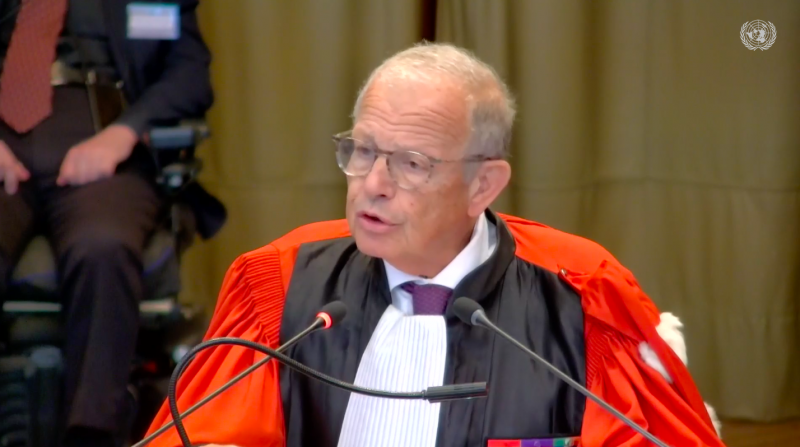
Riyad Mansour: Confirm illegality of Israel’s occupation to pave way for peace
Last to speak was Riyad Mansour, Palestine’s envoy to the United Nations. In a partly very emotional speech, Mansour emphasized the court was gathering in “the Great Hall of Justice in the Palace of Peace”, while “2 million Palestinians are pushed to the border and the wall”.
“We are a proud and resilient people”, the envoy stated, asking “what international means for a nation if it is trembled upon so much.
Mansour called to court “to confirm that Israel’s presence on the occupation territory is illegal” and said, “it’s legal consequences” would pave the way to “just and lasting peace”. The hearing will continue tomorrow Tuesday, at 10 AM local time. South Africa, Saudi Arabia, Brazil, Bolivia as well as, siding with Israel, Canada will make their presentations among others.
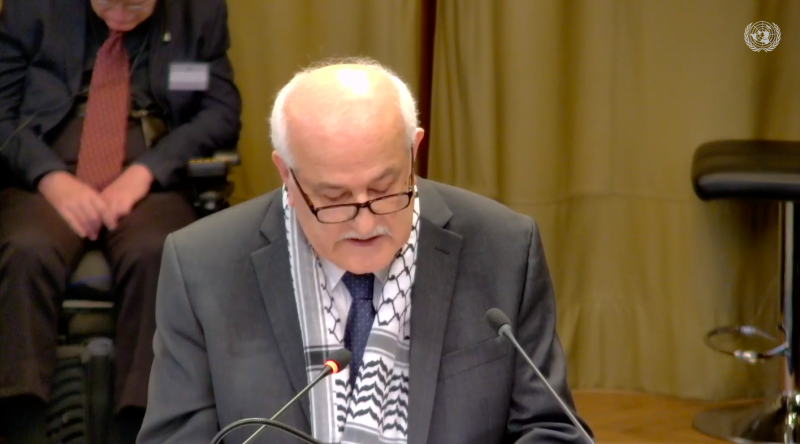
Previously published on TeleSUR english here.







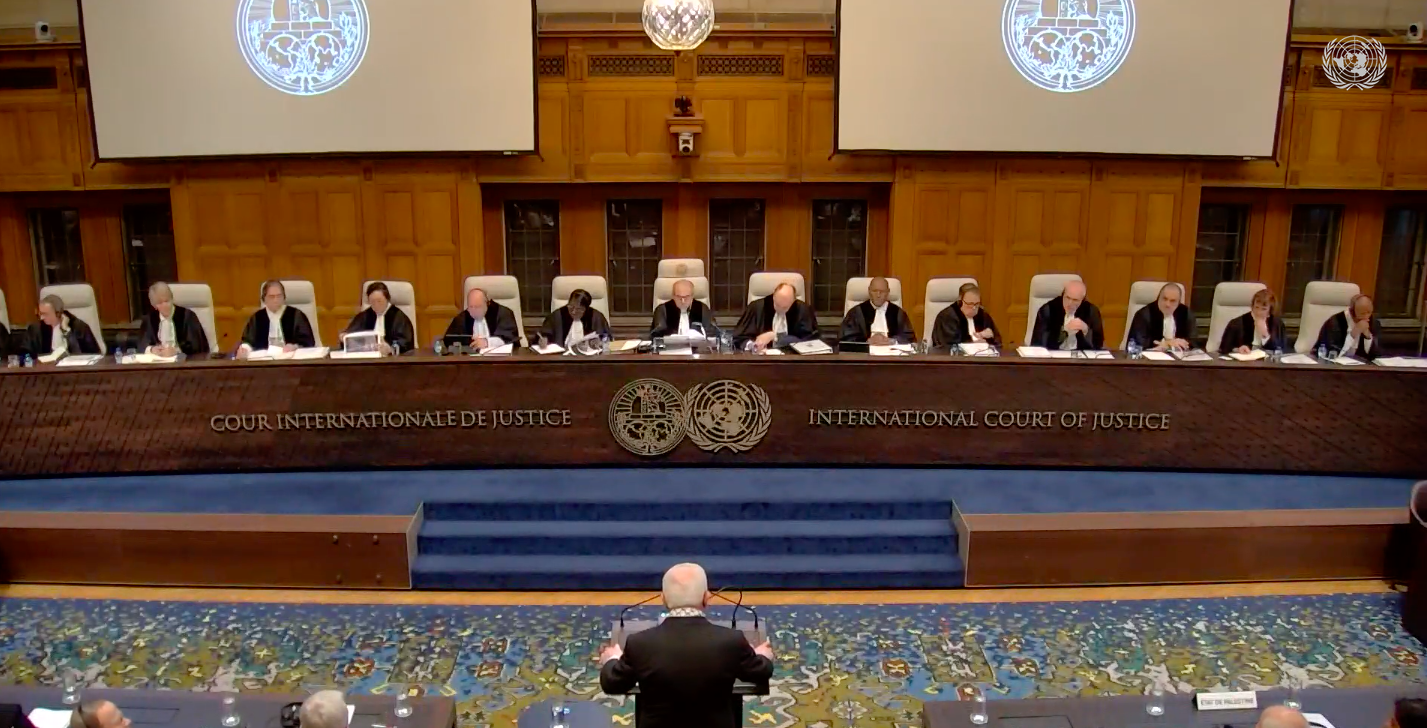

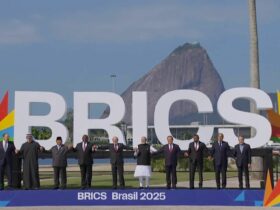


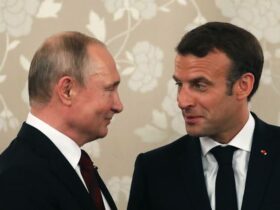




Leave a Reply